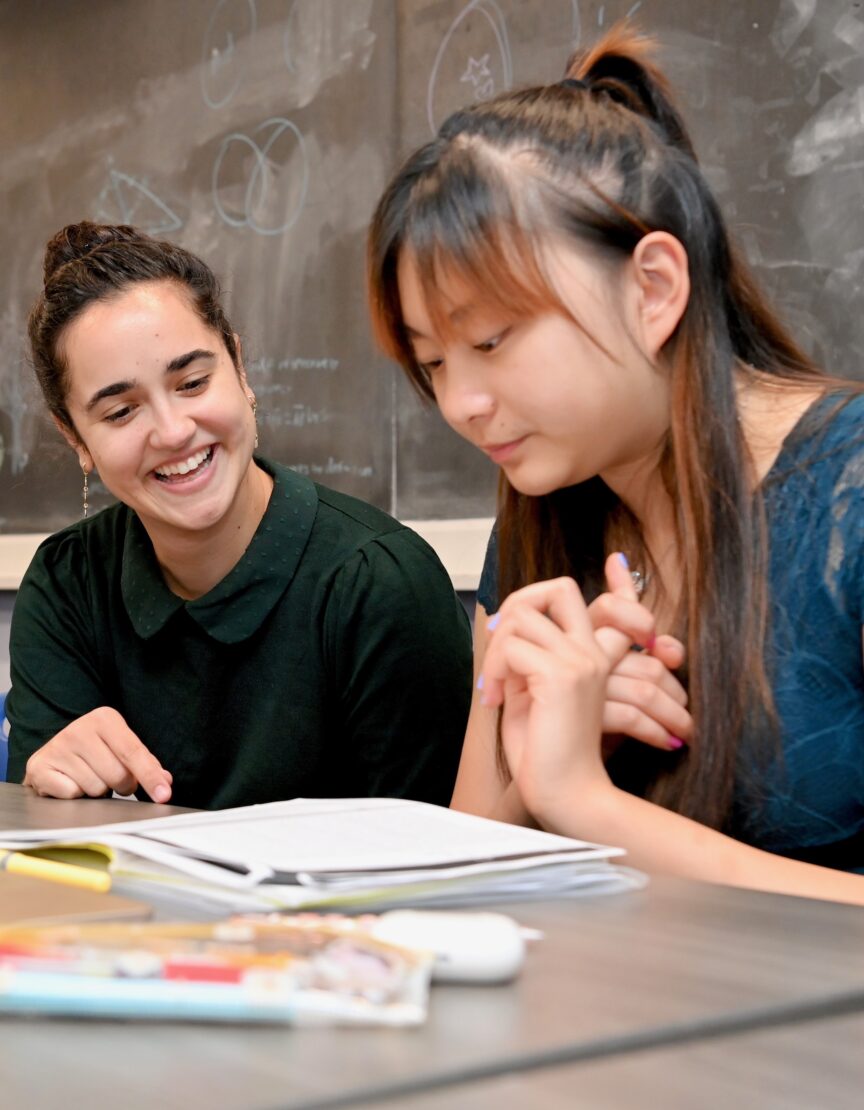
December 06, 2022
Ethi{CS} Project launches a Professional Learning Program
STEM Teachers nationwide join online workshops to learn how to incorporate ethics into their curriculumby Susannah Poland
This fall, the Ethi{CS} Project launched a Professional Learning Program to help teachers build ethics into computer science and other STEM curricula. This year-long program will unfold through a series of live online workshops and asynchronous learning modules. This past August and November, the Ethi{CS} team delivered the first two online workshops for dozens of teachers nationwide.
The Ethi{CS} Professional Learning Program centers around an ethics pedagogy that has been developed by philosophy teacher Kiran Bhardwaj and computer science teacher Nicholas Zufelt, both at Phillips Academy. Both Kiran and Nicholas have been developing the method with their own students, and began sharing their pedagogy with fellow teachers several years ago. This year they are rolling out a sequence of training sessions which will prepare teachers to apply the pedagogy to their existing curriculum, so that any technical content can become an opportunity for ethical inquiry.
The Professional Learning Program covers a mix of design and facilitation techniques. By the end of the workshop sequence, teachers should be able to:
- recognize opportunities for ethical inquiry in their lessons,
- re/design activities so that they prompt students to consider the ethical dimensions of their work,
- and skillfully navigate tricky discussions about ethics.
Throughout the program, teachers practice redesigning real lessons so that good technical work requires good ethical work—in other words, students must exercise ethical thinking in order to achieve a technical goal. They also learn how to cultivate classroom norms and practices that support student questioning, self-reflection, and collective contemplation of ethics.
The Professional Learning Program began with a virtual day-long workshop, Learning Ethi{CS}, just before the start of the academic year. Kiran and Nick introduced participants to key features of the Ethi{CS} pedagogy. Discussions revolved around challenges teachers face as they broach ethical issues in their classes, and Kiran shared insights from her experience teaching ethics at Andover. She advised, “The task is to train students to frame better questions about ethics, have them reflect on the limitations of what they believe and know, and, (only) after that, determine what makes for better and worse answers for the topic at hand using various philosophical practices.”
Because many teachers feel unsure facilitating difficult conversations about ethics with students, Kiran introduced strategies for preventing possible issues by setting expectations or establishing norms/practices. Nick guided the group through the redesign of sample lessons from his computer science class, using the questions:
- What technical skills/concepts is the assignment trying to teach or reinforce? What ethical topics might align with this assignment?
- What modifications or remixes might bring these closer?”
Participants left with a template for planning ethically engaged lessons or activities, and the encouragement to start applying the pedagogy in their classroom.
The second workshop, Roadblocks to Bringing Ethics into the Classroom, was planned for November so that participants could reconvene with experiences to share from their fall courses. Nick and Kiran surfaced patterns which commonly arise as students start to grapple with the challenge of thinking ethically and offered strategies for preventing or skillfully managing counterproductive responses to ethical prompts.
For example, students frequently adopt a relativist stance, saying things like, “It’s all subjective! There’s no absolute sense of right or wrong here—just different perspectives. There’s no point to this extra reflection.” In this case, teachers may recognize students’ effort to be ethically humble, and also point out the limitations of their view. Most of the time, students don’t actually feel that all possible outcomes are acceptable, and they usually see the value of assessing the potential consequences of their actions.
Using examples from the experiences of Nick’s and the participants’ classes, the group discussed ways to guide students toward deeper and more complex engagement with ethics. The workshop itself modeled many of the teaching strategies embedded in the Ethi{CS} pedagogy, and further developed the collegiality within the learning cohort.
After the session, teachers reflected on the complexity of this subject area, and the utility of the frameworks offered by the Ethi{CS} Project:
- One teacher said, “I love that there are known patterns… [I] have some thought-through responses.”
- Another noted, “How complicated it is to know the right/best/most helpful amount of ethical analysis to bring into a tech classroom!”
- And another teacher said that, after this workshop, “I can ask my students to think critically about whether they are serving their users or manipulating their users.”
The Ethi{CS} Professional Learning Program will continue throughout this academic year, and teachers are welcome to attend individual sessions as they are interested and able without committing to the entire series. New participants who have not yet been introduced to the Ethi{CS} pedagogy should indicate this in their registration, so that the Ethi{CS} team can provide appropriate support. For more information about the Professional Learning Program and to register for upcoming workshops, please see the program page on the Tang Institute website.
____________________________________________________________
Learn more about the Ethi{CS} Project, a Tang Institute project.
